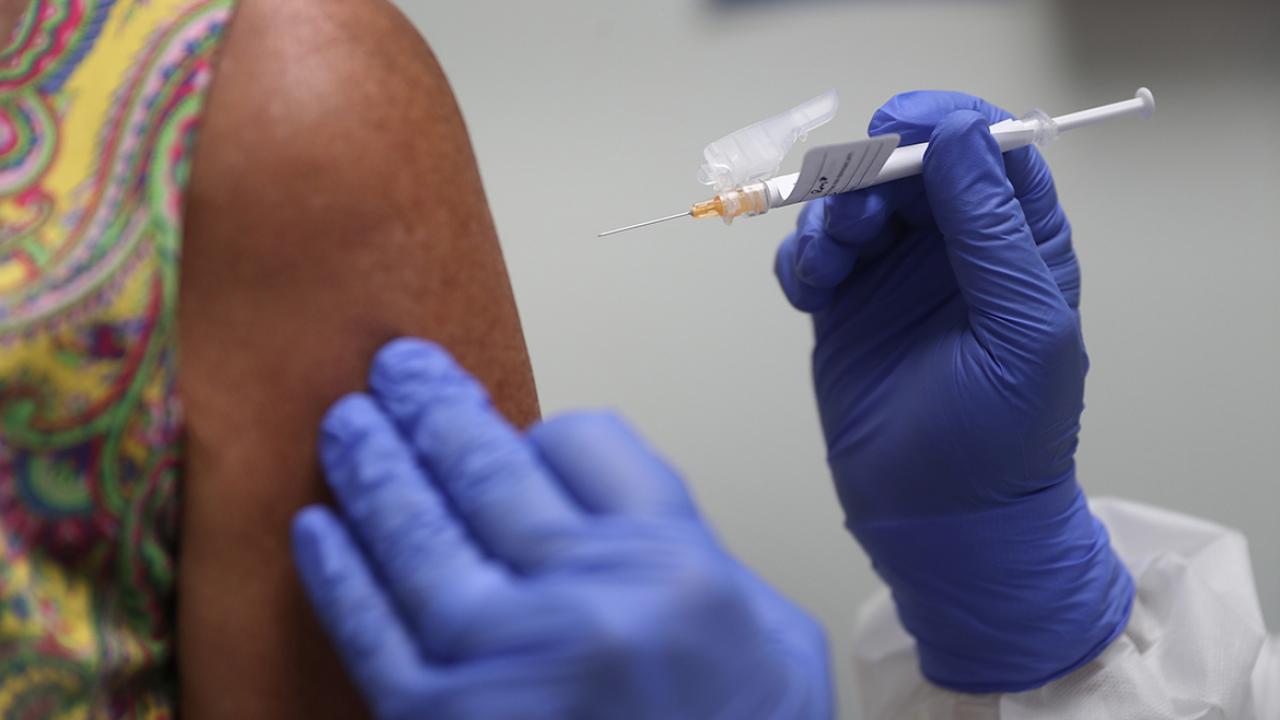COVID-19 vaccine hesitancy: 10 tips for talking with patients – American Medical Association

Physicians have their work cut out for them in trying to get patients to take a COVID-19 vaccine. In early December, just 56% of people told researchers that they were somewhat or very likely to be vaccinated, according to a research letter published in JAMA.
On top of that, 29% of people who work in a health care delivery setting told pollsters for the Kaiser Family Foundation (KFF) that they probably would not or definitely would not get a COVID-19 vaccine, even if it were available for free and scientists had deemed it safe.
So, what are some things to do to help your patients move from vaccine hesitancy to vaccine acceptance?
Internist Marie T. Brown, MD, the AMA’s director of practice redesign, discussed strategies during a recent AMA webinar, “Vaccinations: Roadmap for Success.” She also joined infectious disease specialist Constance A. Benson, MD, a professor of medicine and global public health at University of California, San Diego, in discussing tips during a recent episode of “AMA COVID-19 Update.”
Here are some of their suggestions.
Understand your patients’ concerns
Understand your patients’ concerns
Some Black patients may be hesitant because of mistrust in the medical community stemming from experiences such as the Tuskegee syphilis study; some Hispanics may be hesitant because of a more general mistrust of the government stemming from immigration or border-patrol experiences.
Physicians should try to meet patients in the middle and build trust, recognizing what has happened so they can then move forward.
Ask why a patient is hesitant
Ask why a patient is hesitant
If someone declines the vaccine, you can say, “May I ask why? What have you heard in your community?” It is a less judgmental way to find out what they may be thinking, giving patients the opportunity to give frank voice to concerns they might have while attributing them to others.
Counter any misinformation
Counter any misinformation
People hear and see a lot of misinformation in their social circles and on social media. Pew Research Center found that substantial minorities believed in COVID-19-related conspiracy theories. As a physician, you need to correct any misinformation a patient may give for not getting the vaccine.
Know you are the most trusted information source
Know you are the most trusted information source
Physicians can be effective in countering vaccine misinformation, said Dr. Brown, who is also a professor of internal medicine at Rush University Medical College. KFF research found that a person’s own physician or health care provider is the most trusted source for information on the COVID-19 vaccine, with 85% of respondents holding this belief no matter their gender, sex, ethnicity or political belief.
Tell patients they need to get the vaccine
Tell patients they need to get the vaccine
Adult patients say the second biggest reason they don’t get an immunization is that a “doctor hasn’t told me I need it,” according to a 2008 study in the American Journal of Medicine, “Barriers to Adult Immunization.” Saying nothing is saying something, Dr. Brown noted.
Tailor your message
Tailor your message
To reach people no matter their political view—or whether they believe a vaccine is a personal choice or collective responsibility—focus the discussion on how getting a vaccine can help protect a loved one such as a grandparent, a child or someone who is immunocompromised.
Address patients’ fears about side effects
Address patients’ fears about side effects
Start a conversation by asking a patient how they felt after their last vaccination, such as a flu shot. Ask if they had any side effects or other reaction. Then you can move the conversation to tell them the COVID-19 vaccine is not much different and prepare them for the possible side effects they may experience.
Preparing patients to expect muscle aches and fatigue if a second dose is required can help prevent them from worrying that the vaccine “gave them the disease,” calling you with concerns and more importantly discouraging their family and friends from getting vaccinated. Hope for the best but prepare them for the worst.
Prepare your staff to answer questions
Prepare your staff to answer questions
The AMA has produced a COVID-19 vaccine script for patient inquiries to help physicians and their staff answer patient questions.
The AMA has developed documents to answer frequently asked questions about COVID-19 vaccination: one is aimed at physicians, and the other addresses patient queries.
Show your vaccination pride
Show your vaccination pride
Everyone in your office who is vaccinated can wear a button or sticker showing they received their COVID-19 shot, reinforcing to people that the vaccine is safe and that you trust in it.
Tell stories to make impact
Tell stories to make impact
The public tends to weigh risks and benefits differently than physicians do, so telling stories that illustrate why the vaccine is important will have a stronger impact on patients.
An AMA STEPS Forward™ module helps physicians and other health professionals save time while preventing disease by creating a team-based approach for an adult immunization program within their primary care practice. This module addresses concerns about developing such a program and provides physicians with a comprehensive guide for implementation within their practice.
STEPS Forward is part of the AMA Ed Hub™️, an online platform that brings together all the high-quality CME, maintenance of certification, and educational content you need—in one place—with activities relevant to you, automated credit tracking and reporting for some states and specialty boards.
Learn more about AMA CME accreditation.
*** This article has been archived for your research. The original version from Google News can be found here ***


